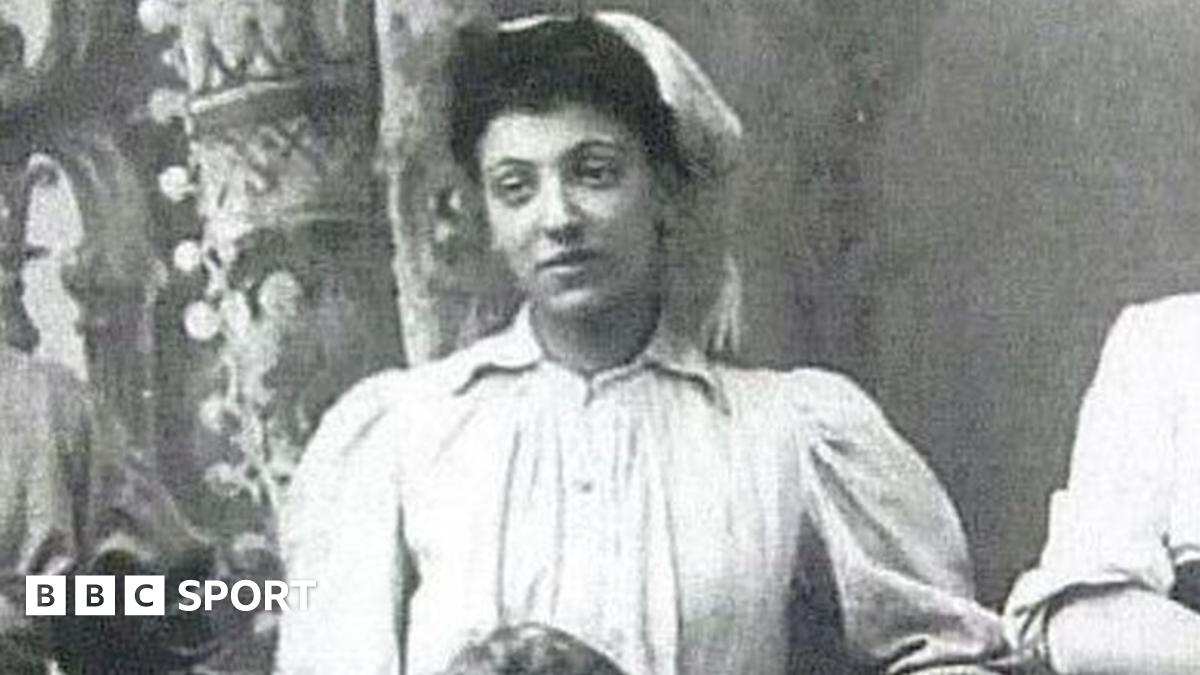
Emma Clarke: FA backs call to honour first British black female player
[ad_1]
Clarke was born in Bootle, Merseyside in 1875.
She lived with 13 other siblings in a terraced house along with her parents – mother Wilhelmina Clarke, believed to be of black Dutch heritage, and father William Clarke, who was a bargeman.
It was when Clarke was aged six or seven that the first official women’s international football match took place in Scotland in May 1881. Later that year a series of matches took place in Liverpool, which is likely to have influenced her.
Her career path saw her transform from a confectioners’ assistant, at the age of 15, to playing for the British Ladies’ team at 20.
Following winter training under the guidance of former Arsenal player Bill Julian during the 1894-95 season, Clarke made her debut on 23 March, 1895 in Crouch End, north London.
More than 10,000 people paid to watch the match between the teams representing north and south of the country.
The Manchester Guardian reported at the time: “Their costumes came in for a good deal of attention… one or two added short skirts over their knicker-bockers. When the novelty has worn off, I do not think women’s football will attract the crowds.”
The Sportsman newspaper wrote: “I don’t think the lady footballer is to be snuffed out by a number of leading articles written by old men out of sympathy both with football as a game and the aspirations of the young new women. If the lady footballer dies, she will die hard.”
Clarke represented the British team until around 1903, and also played for Mrs Graham’s XI for their tour of Scotland in 1896.
There are few details of what happened to the footballer after 1903.
Her life was commemorated, external at an event held by the Royal Society for the encouragement of Arts, Manufactures and Commerce (RSA) on Tuesday, which was co-curated by leadership consultant and activist Michelle Moore.
[ad_2]
Source link




